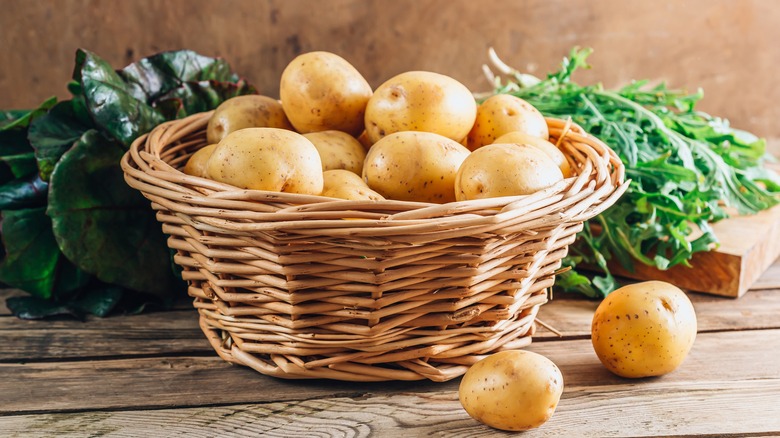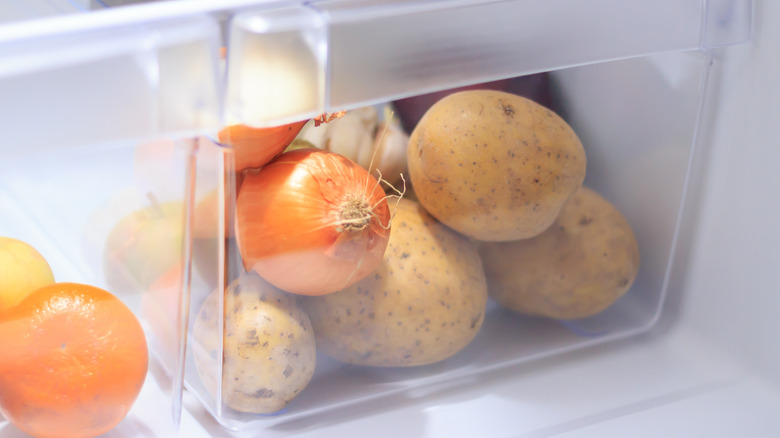Can Potatoes Remain Uncovered During Storage?
Potatoes are a hardy vegetable, one that can survive far longer than leafy greens or other fresh produce. But not many people know that the way potatoes are stored can play a significant role in how long they stay fresh and how they taste once you eat them. There are plenty of storage methods available, so should you opt for one that covers your potatoes or not?
The answer may depend on how you defined "uncovered." There are several key factors to consider when you're trying to keep potatoes good for as long as possible. Among these are airflow and ventilation, which prevent moisture from accumulating and thus prevent mold growth and rapid sprouting. To allow for this ventilation, you should avoid tightly sealed plastic bags or containers.
On the flip side, it's important not to leave them completely uncovered, either. Just as vital as airflow, keeping potatoes cool (around 50 degrees Fahrenheit, if possible) and away from direct light is essential. Higher temperatures encourage rotting, while sunlight causes potatoes to produce chlorophyll, producing the same result. Rather than leaving your potatoes in an uncovered bowl or basket, your best bet for maintaining both quality and taste is likely to store the potatoes in a cardboard box (or similar container) with the flaps left partially closed. This allows ventilation while protecting the spuds from the elements.
Storage methods to avoid
Regardless of how robust potatoes are, some storage methods aren't ideal. For example, skip the fridge when looking for somewhere to keep your spuds. When you refrigerate raw potatoes, their starches begin turning to sugars, potentially making them unpleasantly sweet and creating a grittier texture. Additionally, except in rare, carefully prepped circumstances, you should never store potatoes in the freezer. Their water will typically separate from their starch, creating a mushy, inedible mess when thawed.
Potatoes can last up to four to six months when stored in ideal conditions. If you're storing them for the long term, you should also regularly check your stash and remove any soft or sprouted potatoes, which can quickly cause a chain reaction of spoilage in the others. Now you can stock up on those potatoes at the grocery store or farmer's market; with this knowledge, they'll be ready for all sorts of baking, frying, mashing, and more for months to come.

